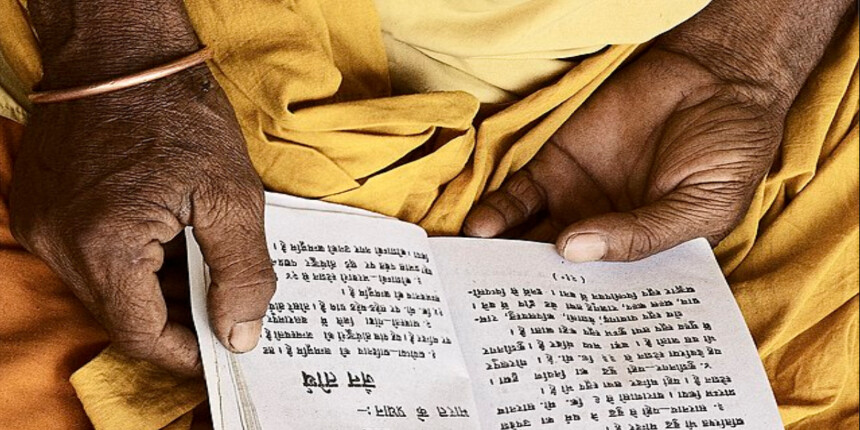UGC pushes for IKS courses in UG, PG, MBBS programmes
R. Radhika | June 23, 2023 | 01:36 PM IST | 3 mins read
UGC guidelines require at least 50% of the credits assigned to IKS to be related to the “major” subject. MBBS students must study Indian systems of medicine.

NEW DELHI: University Grants Commission has made vedic mathematics, observations of ancient astronomy, mythological epics, puranas, and ancient Sanskrit text Sushruta-Samhita an essential part of credit-based curriculum in all higher educational institutions.
According to the final ‘Guidelines for Incorporating Indian Knowledge in Higher Education Curricula’, educational institutions across India will have to offer a panoply of foundational and elective courses on Indian Knowledge Systems at both undergraduate and postgraduate levels.
The guidelines recommend that MBBS students take credit courses in the first year on Indian Systems of Medicine, to get a “basic understanding of Ayurveda, Yoga and Naturopathy, Unani, Siddha, and Homeopathy”. In the second year, UGC recommended, MBBS students can take credit courses in theory and practice of the same courses. Selected extracts on plastic surgery, cataract surgery and anal fistula from ancient text of Suśruta-Samhitā are some of the suggested courses by UGC. The Indian Medical Association had earlier opposed the inclusion of Indian systems of medicine in the MBBS curriculum.
In addition, every student enrolled in either undergraduate or postgraduate programmes should be encouraged to take credit courses in IKS amounting in all to at least five percent of the total mandated credits. As per UGC regulations, at least “50 percent of the credits apportioned to the IKS should be related to the major discipline and should be accounted for the credits assigned to the major discipline.”
For teachers the guidelines further recommend that a “wide range of primary and secondary resources” and at least two lectures on “fundamental vocabulary of IKS” should be provided to enable teachers to understand the continuous and vibrant tradition of IKS.
The guidelines also encourage institutions to teach contemporary applications of the Indian Knowledge Traditions. The medium of instruction for the IKS courses could be any of the Indian languages which have been approved as a medium of instruction in higher education, apart from English and Sanskrit.
Also Read| ‘Legitimise superstitions’: What Ayurveda courses teach and why there’s demand for change
IKS in UG programmes
Students enrolled in four-year undergraduate programmes are required to take a broad-based IKS foundational course that covers introductory material on all aspects, preferably in the first four semesters.
At least half of the credits apportioned to IKS should be related to a major discipline and accounted for the credits assigned to that major discipline. “These credits may be apportioned to the core disciplinary courses and the multidisciplinary courses. These courses could be in any of the disciplines/topics that are part of IKS, which are related to the field of specialisation that the student is pursuing in the UG programme.” In other words, a BA (H) History student will be encouraged to pick courses related to history or a Mathematics major can choose elective courses on vedic mathematics.
At postgraduate level, irrespective of discipline, UGC guidelines recommend that students should take “adequate number of advanced credit courses in any of the disciplines or topics that are part of IKS and related to their subject of specialisation”. Apart from that students can also opt for additional courses that are “ consistent with the requirements of the PG programme”.
Also Read| UGC frames guidelines to start courses on Indian heritage to attract foreign students
IKS model curriculum
The guidelines have also outlined a model curriculum based on which higher education institutions can design their own curriculum. Courses like Indian logic, Indian linguistics, Indian metallurgy, Indian architecture are some of the suggested elective courses. Special topics that are part of IKS, such as Indian algebra, Indian astronomical instruments, Indian iconography, Indian musical instruments, water management in Pre-British India are also recommended subjects.
Some of the other courses suggested by UGC include “splendid geographical isolation of India and the uniqueness of Indian culture”, “Ramayana and Mahabharata, and their important regional versions”, “Puranas”, foundational texts of Indian Philosophies, “including the Jaina and Bauddha”, and “foundational texts of Indian religious sampradayas, from the Vedic period to the Bhakti traditions of different regions”.
Topics like “Bharartavarsha as a Chakravarti-Kshetra and important attributes of Chakravartin (concept of universal ruler which finds mention in Hindu, Buddhist traditions)” is also one of the suggested potential courses in Indian polity and economy.
Follow us for the latest education news on colleges and universities, admission, courses, exams, research, education policies, study abroad and more..
To get in touch, write to us at news@careers360.com.